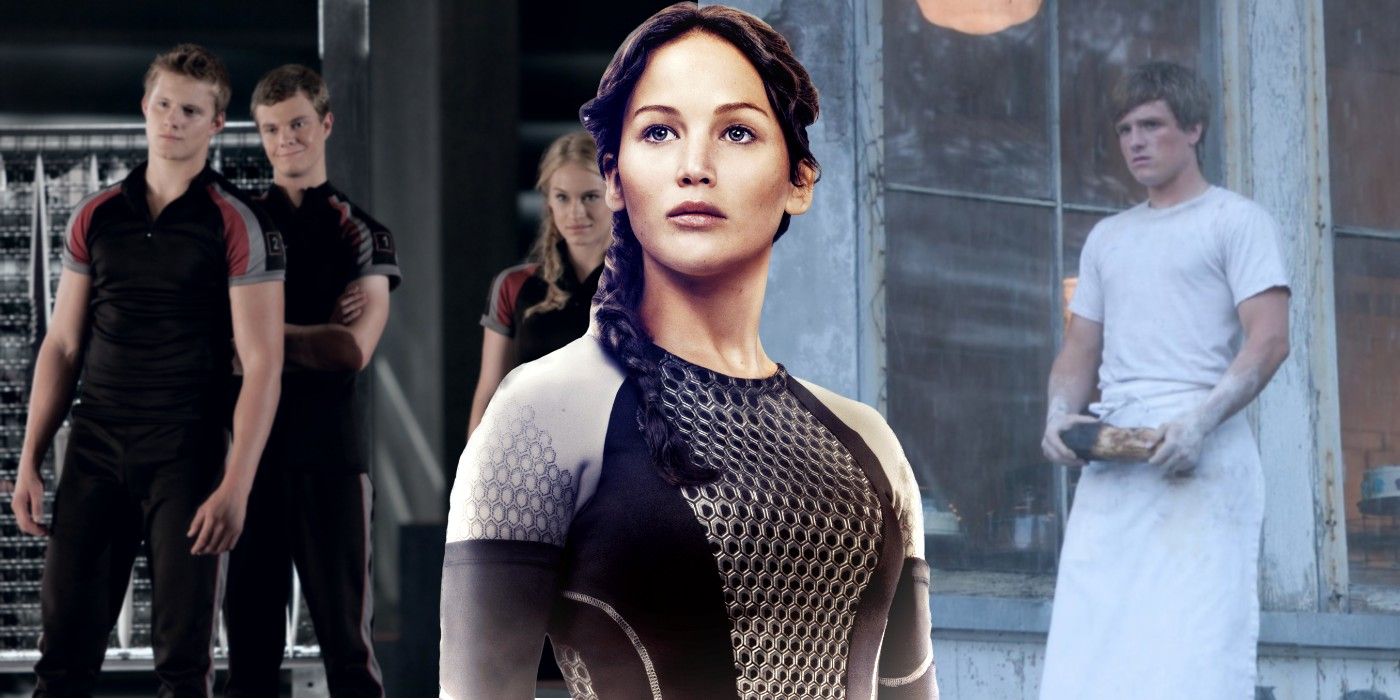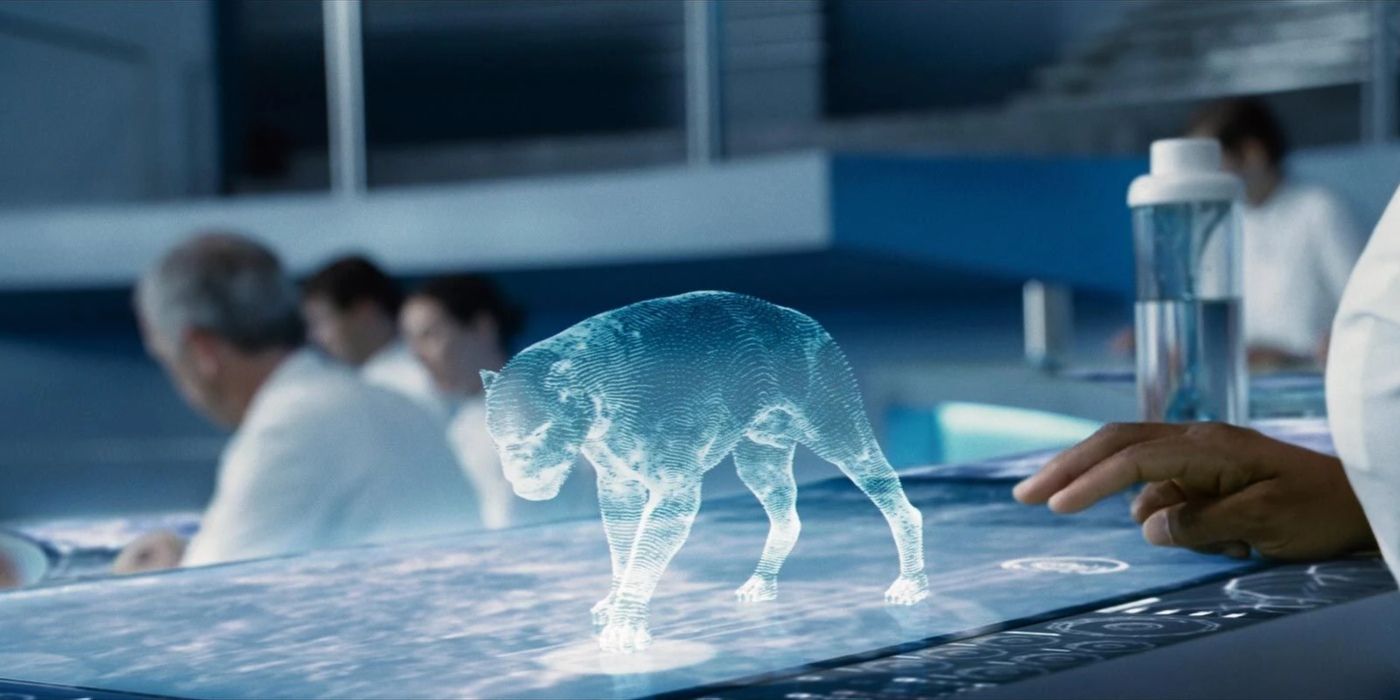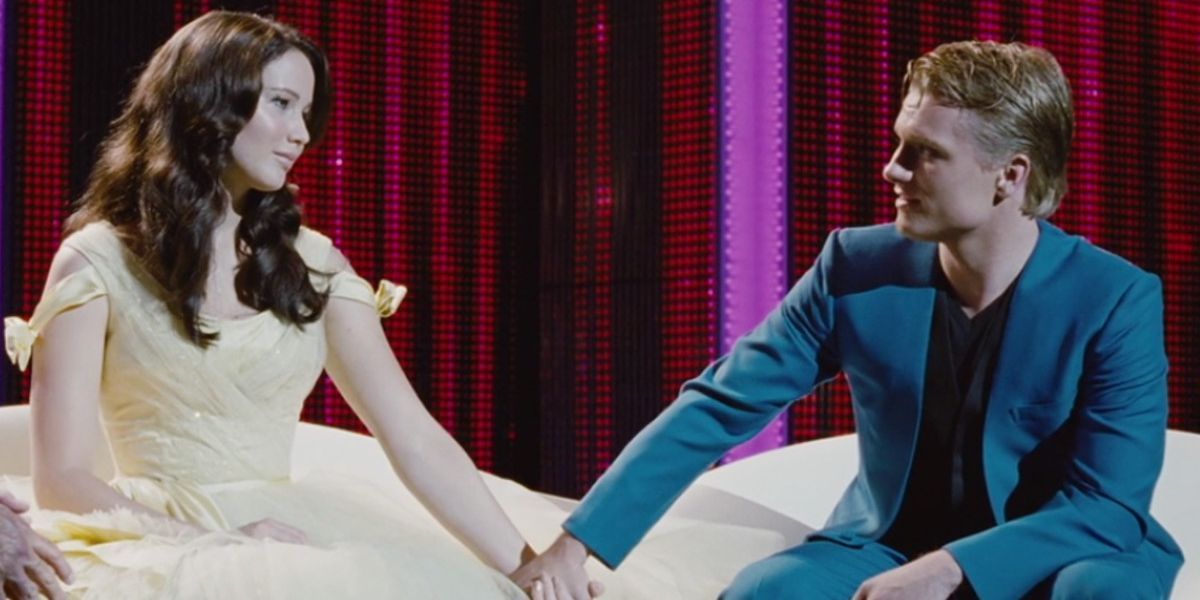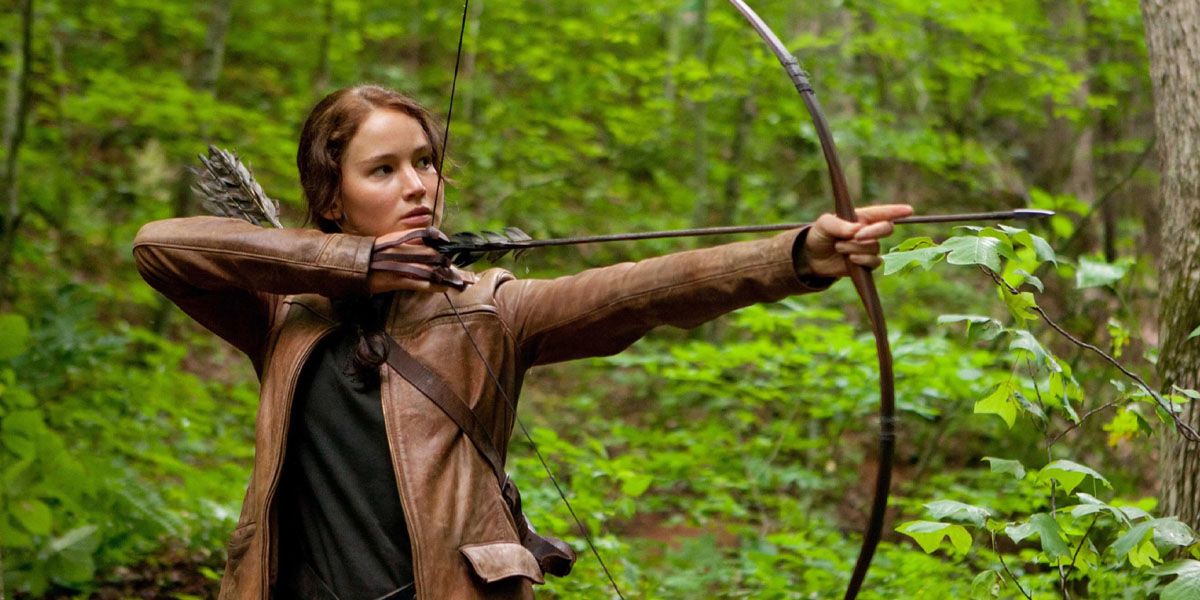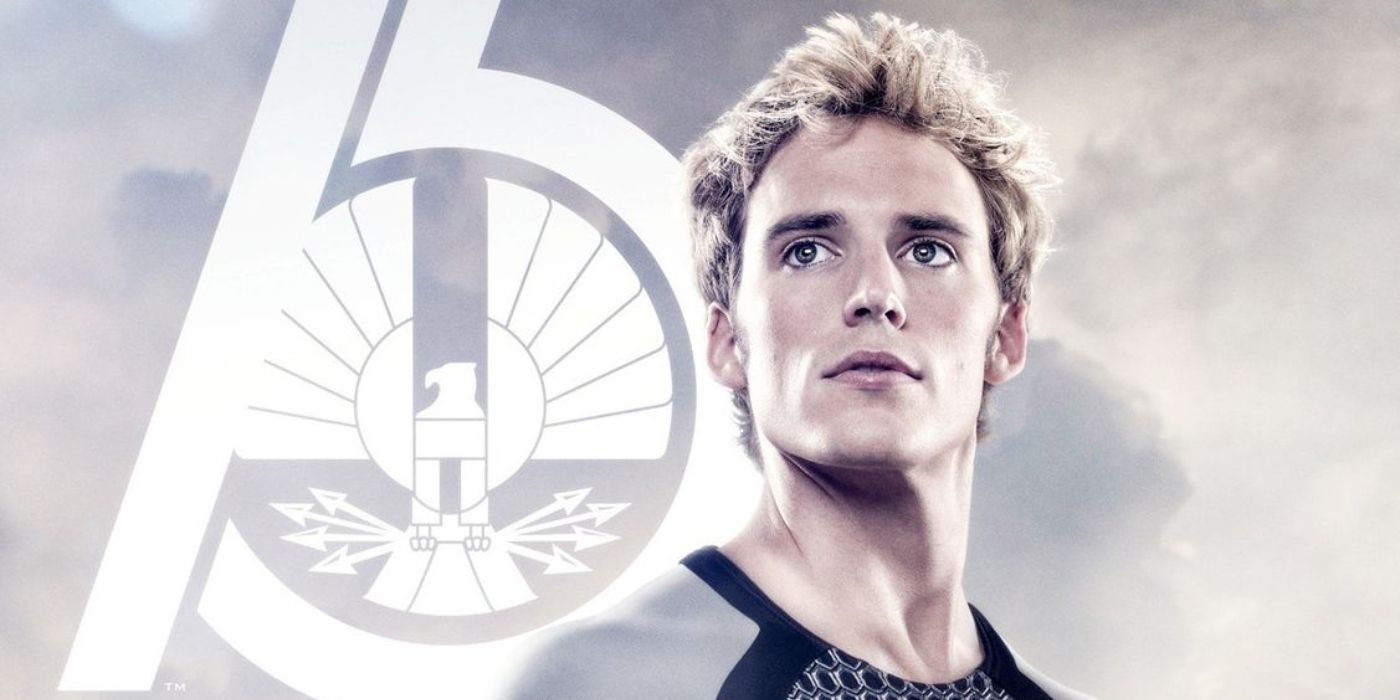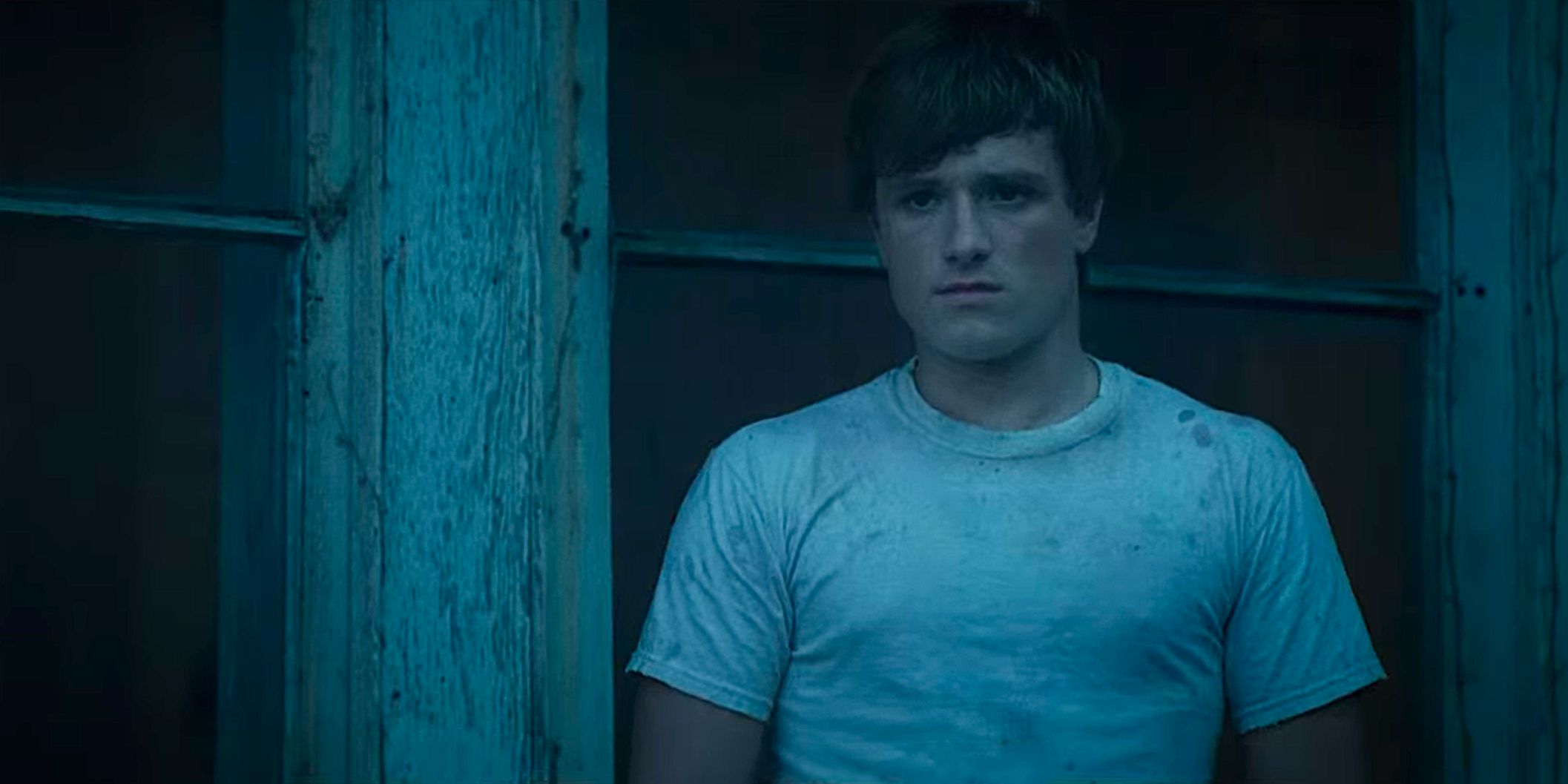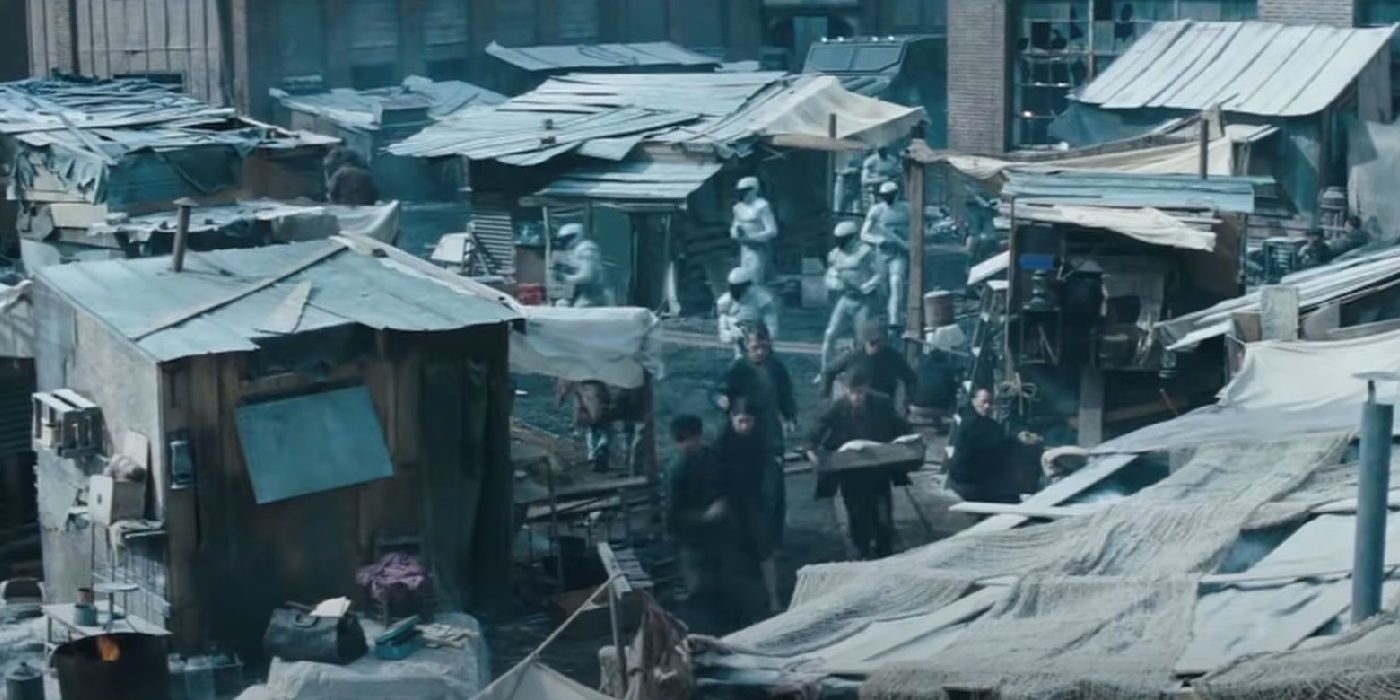With a prequel movie on the way, The Hunger Games continues to draw in new fans and inspire old fans to revisit the series. The movies are currently available to watch for free with ads on YouTube, making it easier than ever to catch up on the franchise. But over time, misconceptions about The Hunger Games have arisen that should be corrected.
In some cases, certain details about the world of Panem simply didn’t make it into the Hunger Games film adaptations, leaving movie fans out of the loop. Other misconceptions come about because of the series’ reputation rather than the story itself. These are some of the things viewers most often misunderstand about The Hunger Games.
9 Nothing About The Hunger Games Is Fair
Viewers are usually surprised to see just how much control the Gamemakers have over the arena and the events of The Hunger Games. Aside from releasing mutts or creating obstacles out of thin air, they can also change the rules, as evidenced by their decision to allow two winners during the 74th Games. Fans are shocked when they revoke this decision because it’s unfair, but nothing about the Games is fair.
As Snow points out in his discussion with Seneca Crane, they could easily kill all the tributes if they wanted to. Instead, they turn it into a game and create the illusion of fairness so the Districts have hope that their tributes might survive and play along. Individual tributes might appear to have agency, but the Capitol still controls the narrative until Katniss takes a stand with the berries.
8 Katniss and Peeta’s Love Story Was Fake
It can be easy to misunderstand the true nature of Peeta and Katniss’s relationship in The Hunger Games and even Catching Fire. After all, the adaptations don’t include Katniss’s inner monologue the way the books do. As such, it’s difficult to discern how Katniss and Peeta really feel about each other in the first two installments.
Being told from Katniss’s perspective, the Hunger Games books make it clear that Katniss doesn’t have much romantic interest in Peeta at first and isn’t sure how he feels about her either, so their love story starts off as an act. After the first Games, Katniss learns that Peeta genuinely loves her, and she gradually falls in love with him for real.
7 Katniss’s High Score Isn’t a Good Thing
At the end of their week of training, the Gamemakers evaluate tributes individually and give them a score indicating how well they’re expected to do in the Games. Katniss shoots an arrow at the Gamemakers and earns an 11 out of 12. In the Hunger Games movie, she and her team celebrate this because it will help Katniss get sponsors, but the book confirms the Gamemakers have an ulterior motive.
Earning such a high score may be great for sponsors, but it also reveals to the other tributes that Katniss is a threat. Katniss is trying to fly under the radar by hiding her archery skills, but her score makes her a target of the Career pack. In other words, the Gamemakers were hoping the other tributes would take Katniss out quickly after her stunt with the arrow.
6 District 4 Is a Career District Too
Haymitch explains in The Hunger Games that Districts 1 and 2 are called Career Districts because their children often train for the Games from an early age and volunteer when they get older. But as book readers know, District 4 is a Career District as well.
It makes sense that this would be changed for the first movie because the District 4 tributes aren’t as heavily featured as the ones from Districts 1 and 2. However, it leaves movie fans without that context when they meet Finnick Odair in Catching Fire. Finnick was the youngest victor in Hunger Games history, and he had certain advantages because he was from a Career District.
5 Training for The Hunger Games Is Forbidden
Because of what Haymitch says about the Careers in The Hunger Games, many viewers wonder why other Districts don’t try to train for the Games, too, instead of sending their children into the arena with no skills. What Haymitch leaves out in the movie is that training for the Games is technically illegal.
Considering nothing is fair in The Hunger Games, the Career Districts receive better treatment because they are more loyal to the Capitol. As such, the Capitol is more willing to look the other way when they break the rules. Poorer Districts, like District 12, don’t get such treatment and have fewer victors. Katniss only has the skills to win because she hunts, which is also illegal.
4 Katniss and Peeta’s Backstory
Most fans will agree that as good as the Hunger Games movies are, they do not do justice to Katniss and Peeta’s pre-Games history. Audiences only see Peeta throw Katniss some burnt bread in the rain, leaving newcomers to draw their own conclusions about the circumstances. As a result, many think Katniss might resent Peeta for not doing more or think Peeta just threw her the bread on a whim.
As book readers know, the bread incident shapes a lot of Peeta and Katniss’s dynamic. Peeta took a beating from his mother for burning the bread, but he did it so he could give the bread to Katniss. Rather than resenting him, Katniss is extremely grateful to Peeta for doing this, as she and her family were starving. Katniss then struggles with the idea that she might have to kill someone who saved her life.
3 The Extent of the Districts’ Oppression
Upon learning that the Hunger Games have been going on for over 70 years, many viewers question how the Districts could keep sending their kids to their deaths for so long. After all, there are 12 Districts and only one Capitol, so they should be able to beat them through sheer numbers. But the movies don’t show just how oppressed the Districts of Panem are.
The Hunger Games‘ Capitol rules with an iron fist and works to keep the Districts as separate as possible. Apart from special circumstances, like competing in the Games, Panem’s citizens are forbidden from leaving their Districts, and communication between Districts is suppressed. On top of that, the Hunger Games pit the Districts against each other so they’ll see other Districts as the enemy instead of the Capitol. With these methods, the Capitol staved off rebellion for 75 years.
2 Why Peeta Joined the Careers
Not unlike Katniss, many fans think Peeta has actually betrayed Katniss when he joins the Career pack in The Hunger Games. They are her biggest enemies in the arena, and as Haymitch states, there’s only one winner. However, this is a very strategic move on Peeta’s part.
Peeta may not share Katniss’s survival skills, but he understands the politics of their situation and is much better at manipulating people. Considering he does have genuine feelings for Katniss, allying with the Career pack allows him to keep a close eye on his enemies and keep Katniss safe from them. He uses his alliance to buy Katniss time when the Careers corner her in a tree and help her get away after the tracker jacker attack.
1 It’s a Cautionary Tale, Not a Romance
Because it was released around the same time as Twilight, many first-time viewers think that The Hunger Games is another YA franchise focused on romance. But beyond both featuring teenage female protagonists who end up in love triangles, the two series don’t have much in common. Whereas Twilight centers on the turbulent love story between Bella and Edward, The Hunger Games is mainly about Katniss surviving and defying an unjust system.
Many YA franchises take place in extraordinary worlds that viewers want to escape to, but The Hunger Games is set in a dystopian future where North America is ruled by a fascist government. While it may include a love story, as many YA properties do, The Hunger Games is more of a cautionary tale about standing up to oppression than a romance.
